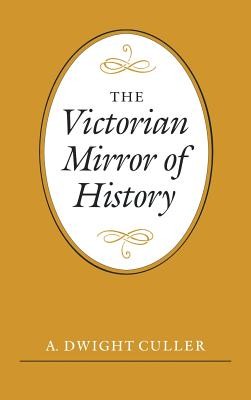
- We will send in 10–14 business days.
- Author: A Dwight Culler
- Publisher: Yale University Press
- ISBN-10: 0300034520
- ISBN-13: 9780300034523
- Format: 15.2 x 22.9 x 2.2 cm, hardcover
- Language: English
- SAVE -10% with code: EXTRA
Reviews
Description
It was a pervasive belief among Victorian writers that their era was transitional in character, that they were moving from an outworn past into an unknown future and therefore needed to look to history for guidance. History was a mirror reflecting the present. On the basis of analogies and contrasts with earlier ages and cultures, the great Victorians tried to gain a sense of their own place in the continuum. In this insightful and elegantly written book, A. Dwight culler explores the Victorians' uses of history, surveying the major authors and the intellectual and cultural currents of the era. Culler begins with an introductory chapter on the Augustan Age, which was the immediately preceding example of the use of history as a mirror to reflect the present. He then charts the rise of the new attitude toward history in Scott and Macaulay and traces its use by individuals and groups who were concerned either with a particular phase of the past or with a current problem in relation to the past. Among those treated are Carlyle, Mill, and the Saint-Simonians, Thomas Arnold and the Liberal Anglican historians, Newman and the anti-Tractarians, Matthew Arnold, Ruskin and the Victorian medievalists, Browning, the Pre-Raphaelites, Pater, and others preoccupied with the idea of a "Victorian Renaissance." Throughout, Culler vividly demonstrates that the Victorian debates about science, religion, art, and culture always had a historical dimension, always were concerned with the relation of the present to the past.
EXTRA 10 % discount with code: EXTRA
The promotion ends in 19d.01:53:49
The discount code is valid when purchasing from 10 €. Discounts do not stack.
- Author: A Dwight Culler
- Publisher: Yale University Press
- ISBN-10: 0300034520
- ISBN-13: 9780300034523
- Format: 15.2 x 22.9 x 2.2 cm, hardcover
- Language: English English
It was a pervasive belief among Victorian writers that their era was transitional in character, that they were moving from an outworn past into an unknown future and therefore needed to look to history for guidance. History was a mirror reflecting the present. On the basis of analogies and contrasts with earlier ages and cultures, the great Victorians tried to gain a sense of their own place in the continuum. In this insightful and elegantly written book, A. Dwight culler explores the Victorians' uses of history, surveying the major authors and the intellectual and cultural currents of the era. Culler begins with an introductory chapter on the Augustan Age, which was the immediately preceding example of the use of history as a mirror to reflect the present. He then charts the rise of the new attitude toward history in Scott and Macaulay and traces its use by individuals and groups who were concerned either with a particular phase of the past or with a current problem in relation to the past. Among those treated are Carlyle, Mill, and the Saint-Simonians, Thomas Arnold and the Liberal Anglican historians, Newman and the anti-Tractarians, Matthew Arnold, Ruskin and the Victorian medievalists, Browning, the Pre-Raphaelites, Pater, and others preoccupied with the idea of a "Victorian Renaissance." Throughout, Culler vividly demonstrates that the Victorian debates about science, religion, art, and culture always had a historical dimension, always were concerned with the relation of the present to the past.


Reviews